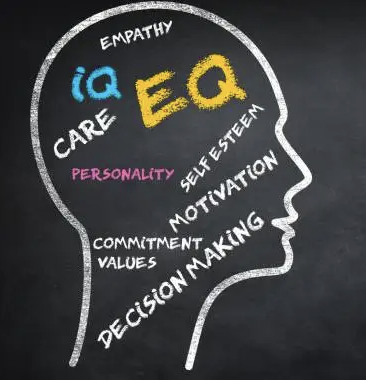Have you ever walked away from a conversation feeling small, confused, or questioning your own judgment? You replay everything in your head, wondering if you’re the problem. This subtle yet powerful toxic pattern is Gaslighting and Manipulation. Gaslighting is a psychological tactic where someone makes you doubt your reality—your thoughts, memories, and emotions. It doesn’t happen overnight. It’s slow, deliberate, and dangerously invisible until you’re deep inside it. For many women, especially in Eastern cultures, this manipulation thrives on deeply ingrained values like patience, silence, and maintaining harmony. But at what cost?
Gaslighting and Manipulation : Psychological perspective
At its core, gaslighting is about control. The manipulator—consciously or not—wants to rewrite reality in a way that serves them. This could stem from their own insecurities or their need to avoid responsibility. By twisting facts, denying events, or dismissing your feelings, they position themselves as the “rational” one while painting you as the irrational or unstable partner, friend, or colleague. Psychologically, this works because humans naturally seek validation. When someone we trust says, “You’re imagining things” or “You’re overreacting,” we want to believe them. Doubt creeps in. It starts small—questioning your memory about a single argument. Over time, you question your ability to judge anything. This is gaslighting’s greatest weapon: self-doubt.
Gaslighting and Manipulation: Why Are Women More Vulnerable?
In many Eastern societies, women are often socialized to prioritize relationships over individual needs. Cultural messages like “Don’t cause drama,” “Sabr karna seekho,” “learn to tolerate” or “Respect your elders/partners” can create fertile ground for gaslighting. When manipulation happens, the blame quietly shifts inward. You tell yourself:
- “Maybe I am overthinking.”
- “Maybe I’m just too emotional.”
- “Maybe I’m not being a good partner, daughter, or colleague.”
This inner dialogue isn’t weakness—it’s conditioning. Eastern women, especially, grow up balancing the weight of expectation: to be strong but quiet, independent but agreeable. When someone gaslights you, they exploit this delicate balance.
Gaslighting and Manipulation : How it Affects Your Mental Health
Gaslighting doesn’t just confuse you—it breaks you down emotionally. Over time, you may experience:
- Chronic self-doubt: You no longer trust your judgment or instincts.
- Anxiety and emotional exhaustion: You feel “on edge,” constantly questioning your actions and words.
- Isolation: You may withdraw from friends and family because explaining your reality feels impossible.
- Depression: Feeling small, unheard, or invalidated repeatedly can erode your self-worth.
Neurologically, gaslighting can activate your fight-or-flight response. The brain, under constant stress, starts associating safety with the manipulator. You cling to their version of events because it feels easier than challenging them. This is why gaslighting often creates unhealthy dependency. The same person who causes confusion becomes the only one who “guides” you back to clarity—on their terms.
Gaslighting and Manipulation: Recognizing the Patterns
Gaslighting doesn’t look the same in every relationship, but its patterns are familiar:
- Denial of Reality
You bring up an event, and they flat-out deny it happened. They might say, “You’re making things up,” or “That never happened.” - Twisting Conversations
Discussions are flipped back on you. You raise an issue, and suddenly, you’re the bad guy. “You’re always looking for problems,” they say, deflecting from their actions. - Dismissing Your Feelings
Valid concerns are brushed off with phrases like “You’re too sensitive” or “You need to calm down.” This minimizes your emotions, making you feel irrational for having them. - Making You Second-Guess Yourself
Over time, you stop trusting your perception. You think, “Maybe I don’t remember that right.”
When these behaviors repeat, you start doubting everything—your words, thoughts, even your identity.
Gaslighting and Manipulation: Why Does it Work Everytime?
Gaslighting preys on trust. If a stranger dismissed your reality, you’d walk away. But gaslighting often happens in relationships where trust already exists:
- Romantic partners
- Family members
- Close friends
- Authority figures (like bosses)
The manipulator knows this. They chip away at your sense of reality gradually, because they know you care about the relationship. Psychologically, the closer we are to someone, the more likely we are to believe them—even when it hurts.
Gaslighting and Manipulation: Reconnecting with yourself heals you
Breaking free from gaslighting is not about confrontation; it’s about reclaiming yourself. Start with this truth: Your feelings are valid. Your experience is real. Gaslighting makes you rely on someone else’s version of the truth. Healing means reconnecting with your own.
- Listen to your instincts. If something feels wrong, don’t dismiss it.
- Ground yourself in reality. Journaling or recording conversations can help you spot inconsistencies.
- Talk to someone safe. A friend, counselor, or support group can validate your experience.
- Set boundaries. You don’t need to explain yourself to anyone who refuses to hear you.
Remember, walking away doesn’t mean you failed. It means you chose yourself. Gaslighting dims your light. But here’s the beautiful part: you can reignite it. Start small. Remind yourself of who you are outside the manipulator’s words. Trust that your thoughts, emotions, and memories are real. Therapy can also help deconstruct these patterns and rebuild your self-trust. Healing isn’t about erasing the past. It’s about recognizing your strength for surviving it. You are not “too much.” You are not “crazy.” You are not what they say. You are seen. You are valid. And most importantly—you are enough.
Gaslighting may silence your voice temporarily, but recognizing it gives you back your power. No one can take that from you again!








